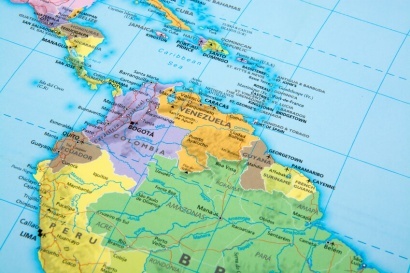Importance of the Maquis (Anti-Franco Conflict)
Miscellanea / / August 08, 2023

Specialist journalist and researcher
The Spanish Civil War it ended for the vast majority on April 1, 1939, but not for all; even after the Second World War, some former combatants would keep alive the spirit of the anti-Franco armed struggle.
Enrolled in the allied forces (mainly those of the Free French and the Resistance), they had a rallying cry: “Paris! Berlin! Barcelona! Madrid!”. This meant his goals: liberate France (and, by extension, Europe), and then cross the border to liberate Spain.
They counted on the allies to help them, and for this reason they sought to force the situation by invading the country through the Valley of Aran in 1944, but the allied powers did not react, and condemned Spain to suffer a fascist dictatorship until 1977.
However, this did not dampen the hopes of the guerrillas, who since 1939 had been fighting under a name: the maquis.
Name maquis It comes from the privateering, to name a set of vegetation in the form of a forest with scrub very common in the Mediterranean.
Young men who escaped conscription during the Napoleonic Wars hid in the maquis, this thick forest, and from there the word came to designate those who ambush to fight against others in the form of guerrillas.
From there, he jumped to the continent, defining the guerrillas of the French resistance against the Nazis, among whom many fought exiled Spanish republicans who later continued the fight against the Franco regime, taking with them the name “maquis” or "maquisards".
Maqui activity in Spain began already during the war with the advance of Franco's troops.
Republican soldiers captured by the advance, or people who think that due to their political relevance or another reason they will be persecuted and shot, they "throw into the mountains" -as they used to say commonly in Spain- and begin to organize themselves into parties guerrillas.
Initially, these parties are politically dominated by the PCE, the Communist Party of Spain, and they are already thought of as a way of extending the war in the event of a Republican defeat. During the conflict they were a way of harassing the rebel forces in the rear, forcing the Francoist commanders to maintain units in already occupied territory.
With the collapse of Catalonia, many Republican troops went to France. Initially interning the soldiers and civilians in concentration camps, the troops are recruited by the French army to fight against the Nazi invaders. After the fall of France they will join the resistance.
The combat experience of the Spanish will be key for the French guerrillas. With the Allied landing in Normandy in 1944 and the subsequent advance of the combined forces inland and into Germany, the address of the PCE begins to implement another plan: to launch an invasion of Spain to involve the allies in the liberation of the country.
The "Reconquest of Spain" operation was launched on October 19, 1944, and had two factors: start a popular uprising, and involve the allies.
Neither one nor the other circumstance occurred; the public was fed up with the conflict and was afraid of reprisals, so not only did seconded the uprising, but did not even help the invaders for fear of the retaliation.
On the allied side, already catching a glimpse of the cold War with the USSR, they did not want to support an initiative led by a party that owed allegiance to Moscow, when a furious anti-communist was in charge in Madrid.
During the cold war, the Franco regime became an ally of the United States and NATO, certainly uncomfortable because of its character fascist, but the Franco regime knew how to camouflage its past sympathies for the Nazi regime and the different American governments made the view fat woman.
The maquis will live its heyday between the end of the Second World War, shortly after the frustrated invasion attempt through the Aran Valley, and 1950.
At this time, in addition to the rural guerrillas (which are progressively losing strength), urban guerrillas also began to form. Their actions consist, among others, of bank robberies that allow them to finance the motion of resistance, and attacks on the security forces and attacks against figures of the regime.
The harsh Francoist repression, in addition to being directly against the maquis, also seeks and succeeds in undermining their support among the people. Little by little, the maquisards become more and more disconnected from the people they intended to liberate.
Some end up throwing in the towel and go into exile, to France and from there, others to Mexico. Others end up degenerating into common criminals with the mere objective of surviving. And others end up being eliminated by the regime's security forces.
Added to the international abandonment by the West is Moscow's decision to stop supporting the guerrilla struggle in Spain. The PCE leaves the maquis who want to continue without support.
The last maquis, shot dead by the Civil Guard, will be the Catalans Quico Sabaté (assassinated in 1960) and Ramón Vila "creamface” in 63.
write a comment
Contribute with his comment to add value, correct or debate the topic.Privacy: a) your data will not be shared with anyone; b) his email will not be published; c) to avoid misuse, all messages are moderated.



